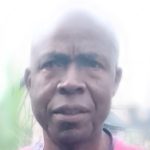June 17, (THEWILL) – The Chief Medical Director of the Federal Medical Centre (FMC), Yenagoa, Bayelsa State, Dr James Omietimi, has disclosed that the hospital is yet to receive any tangible support from the state government, despite the fact that most of the elites in the state access medical care from the hospital, as one of the challenges the centre is contending with.
He, therefore, pleaded with the state government under Douye Diri to open doors for partnership with the hospital, advising “Let it not only be when there is a major problem that the state will come up with support.”
He spoke to the Federated Correspondents Chapel members of NUJ, Bayelsa State, at the weekend in Yenagoa when the group paid him a scheduled visit to the hospital. Omietimi also used the opportunity to lament the acute shortage of personnel in the hospital due to Japa Syndrome, maintaining that the federal government should do well to allow the hospital to make some employments to replace the doctors, nurses, laboratory scientists, physiotherapists, among others, who have left Nigeria in search of greener pastures.

The CMD assured of improved services at the hospital. He encouraged families looking for babies to come for IVF at the hospital, disclosing that the hospital now renders the service at affordable rates.
He said, “For now, we are not getting support from the state government but we are friends to the state. The majority of the people that come here are from the state, so that is part of the discussion we intend to hold going forward. The state can support us in other areas. The state has supported in the past and I believe that they will still support us. The state government will help because their very senior state functionaries and citizens come to this hospital for care. Let us not wait until something terrible happens before the state government will support what we are doing.
“Funding is a major problem. It is not limited to us. Most of the equipment we use in government hospitals, like the consumables, are imported. We need a lot of money to purchase things that we use here. Another challenge, which is not limited to us, is the Japa Syndrome. It is a major problem. And the bulk of the people that are leaving are the clinical professionals that render clinical services: doctors, nurses, pharmacists, laboratory scientists, and physiotherapists, among others.
“They are leaving in droves on a daily basis. The departments are grossly understaffed. People that are working are overworked. In my department, we have only one registrar, a department that we used to have like fifteen registrars. Surgery, the same thing. Pediatrics, we have one. Medicine, we have one. The younger doctors are leaving the country in droves; that is a major problem and we need to replace them. For us to replace them, we need the permission and approval from the federal government.” Manpower shortage is a major problem. Government has put machinery in place for us to replace them, but we have not gotten the final clearance.
Offering suggestions on how to mitigate the Japa Syndrome, he said, “People will always move when they have an opportunity for greener pastures and what they believe are better opportunities, coupled with the insecurity that we have in the country. Inadequate remuneration is also one of the things that is making them leave. Government should look at the issue of infrastructure and equipment that people need to work with.
“They should also look at increasing the retirement age for health workers. Government has been on this for quite some time. Judges retire at seventy; they should look at that angle too. This has been on the front burner for some time. A lot of health workers can still serve up to sixty-five, seventy. In some countries, they work even up to eighty as long as they can work. Let them increase the retirement age from sixty to sixty-five and for consultants, to seventy. Those are some of the things that are driving health workers to other countries. If they can look at those areas, it will reduce the number of people that are leaving the country for greener pastures.
Assuring that very soon patients will not have to struggle to get assistance at the hospital, he said, “A time will come when we will be able to digitalize the whole hospital to a point when you come with your card, all we will do is to slot in your card and with that, your card, everything about you will appear.
“When we get to that stage, anything you need will be brought to your bedside. We hope to digitalise the whole hospital so that services will be connected.
About the Author
Amos Okioma is a Correspondent at THEWILL




